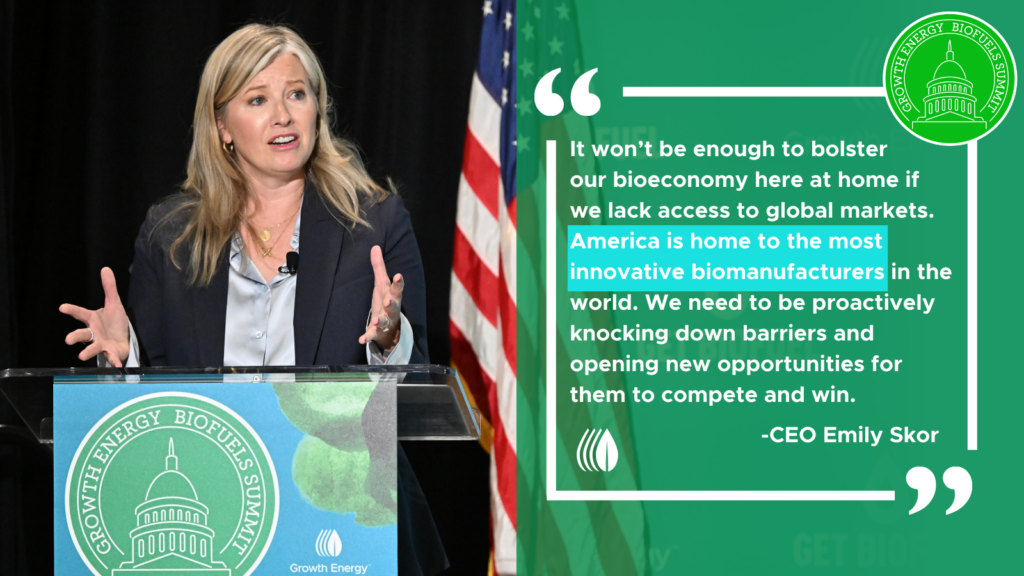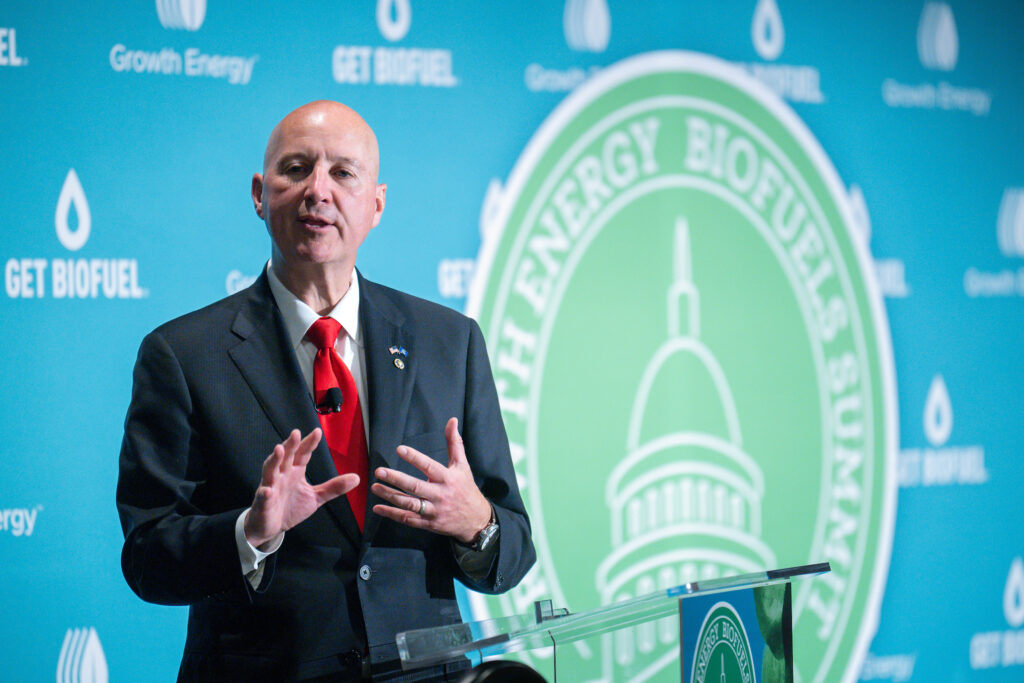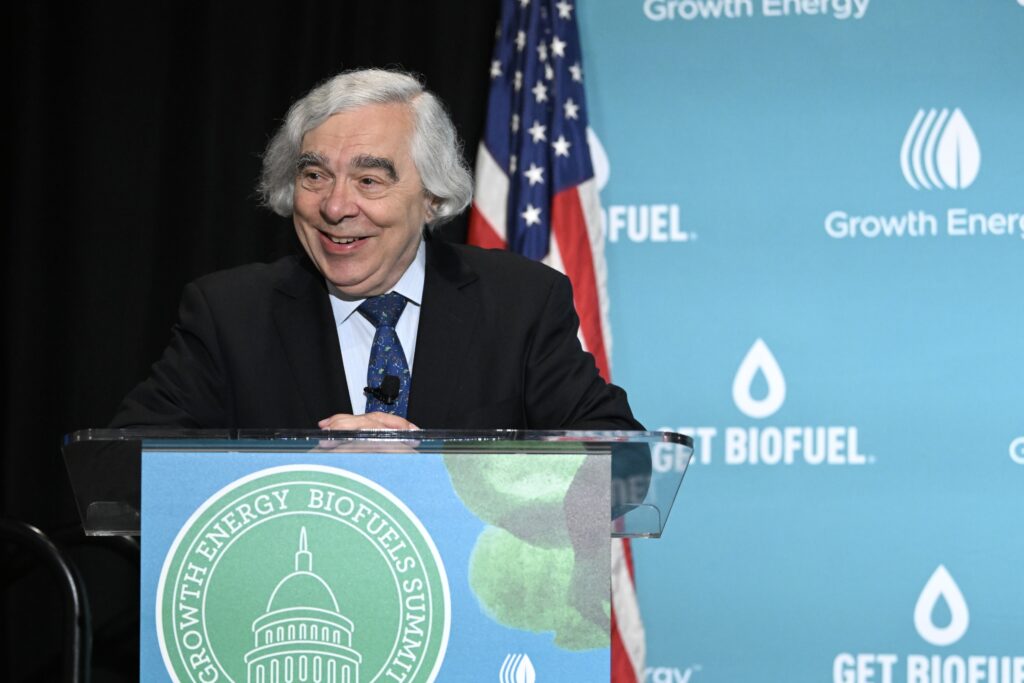Biofuels Summit 2024: Policy Priorities that Deliver on Shared Values
Last week, biofuels advocates and champions from across the country convened in Washington, D.C., for the 15th annual Growth Energy Biofuels Summit (GEBS).

Emily Skor, Growth Energy CEO, and Tom Willis, Growth Energy Chairman and President and CEO of Conestoga Energy Holdings, opened the summit by highlighting the critical role of biofuels and setting the tone for the week ahead.
“GEBS really is a remarkable gathering,” said Willis, “Leaders and champions for homegrown biofuels from all across the country, descending on our nation’s capital to make our presence felt, our voices heard, and our needs and priorities crystal clear.”

In her opening remarks, Growth Energy CEO Emily Skor emphasized, “What’s good for biofuels, producers, and the entire bioeconomy is good for working families on a budget; good for energy security and independence; good for environmental stewardship and decarbonization; and good for economic development in communities that need it most.”
GEBS—the premier advocacy event for biofuels—featured prominent keynote speakers such as U.S. Senator Pete Ricketts (R-Neb.) and U.S. Senator Tammy Duckworth (D-Ill.), among other energy industry leaders and government officials.


Secretary of Agriculture Tom Vilsack’s remarks highlighted exciting updates from the Biden administration.
“We’re working to create systems that will allow us to have our farmers be able to participate fully and completely in ecosystem service markets, which creates another new revenue source for them,” said Vilsack.

Ernest Moniz, 13th U.S. Secretary of Energy and CEO and founder of the Energy Futures Initiative Foundation (EFIF), previewed research on exciting opportunities to further decarbonize bioethanol.

“I would just note that the reality is, when you think about low carbon fuels, we have for decades been pursuing a variety of approaches towards low carbon fuels,” said Moniz. “The only one that to date has been found to be effective, scalable and affordable, frankly, has been ethanol production…And we can’t just sit around and pray. What we can do is work at this in the ethanol-approved, proven approach that can get us there.”
During more than 160 meetings with Congressional member offices, attendees stressed the importance of prioritizing policies such as a permanent solution for nationwide, year-round access to E15, accurate and timely guidance for the 45Z tax credit and setting Renewable Volume Obligations (RVOs) that align with current market conditions, among other issues.
The post Biofuels Summit 2024: Policy Priorities that Deliver on Shared Values appeared first on Growth Energy.
